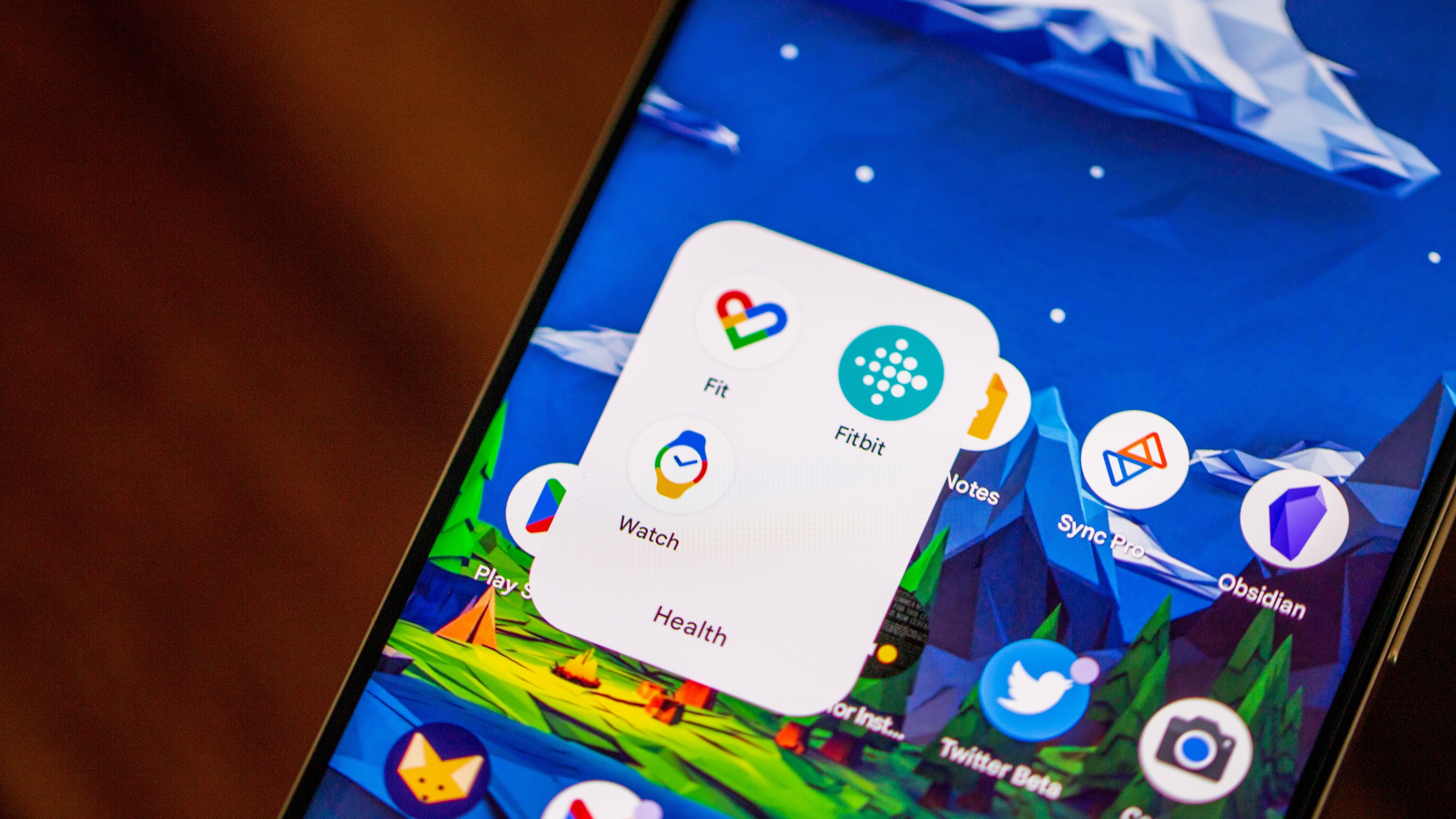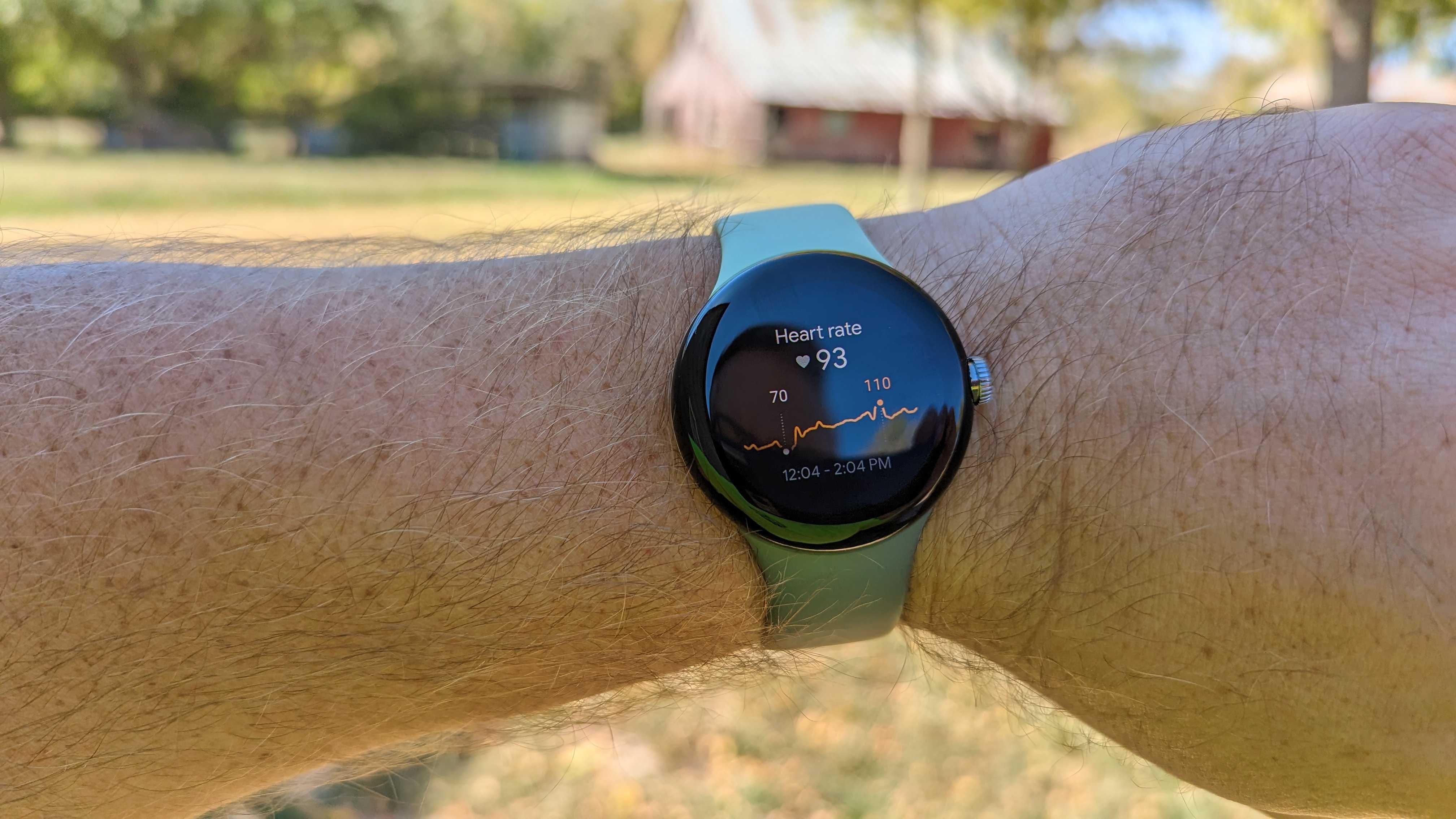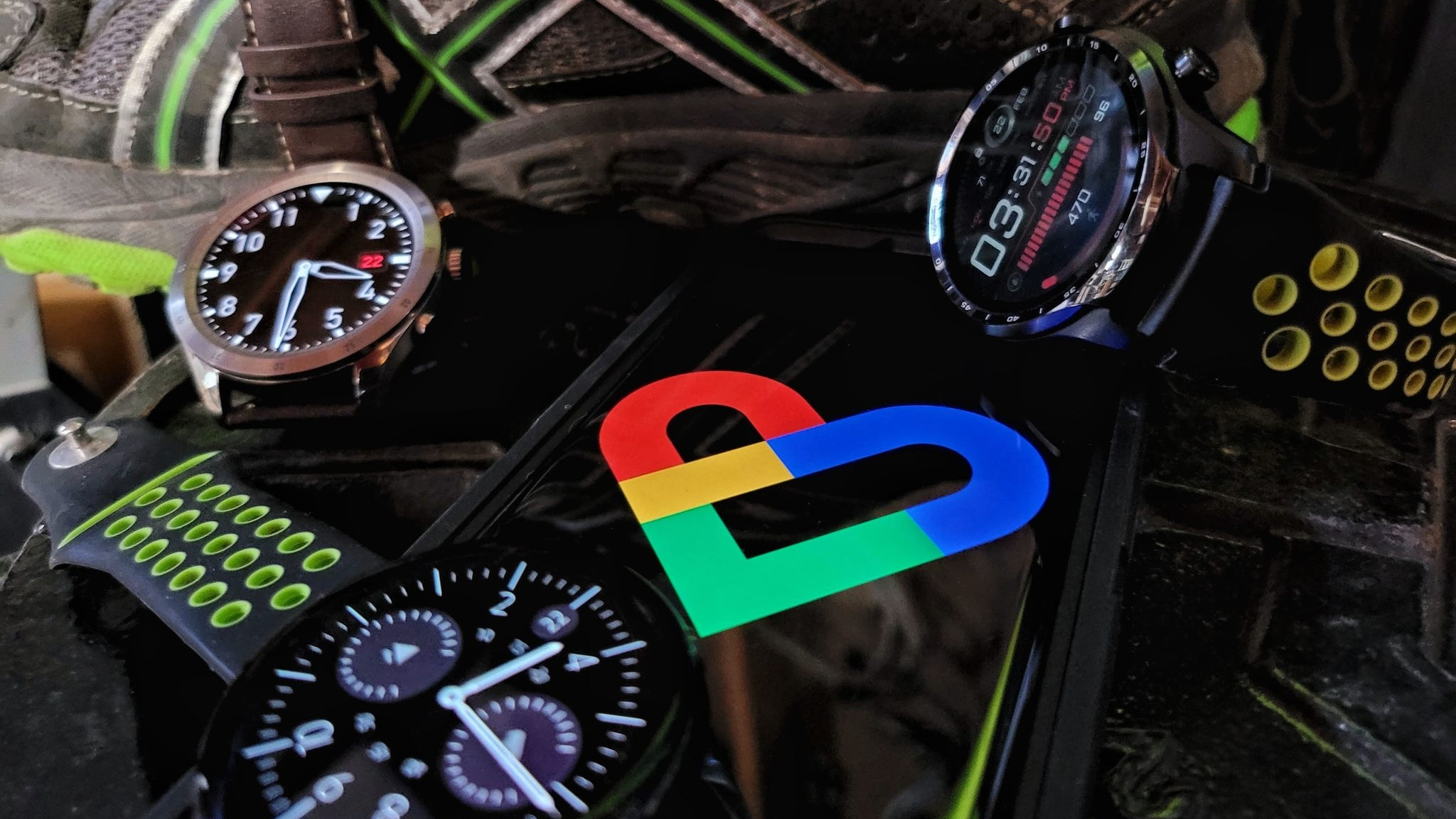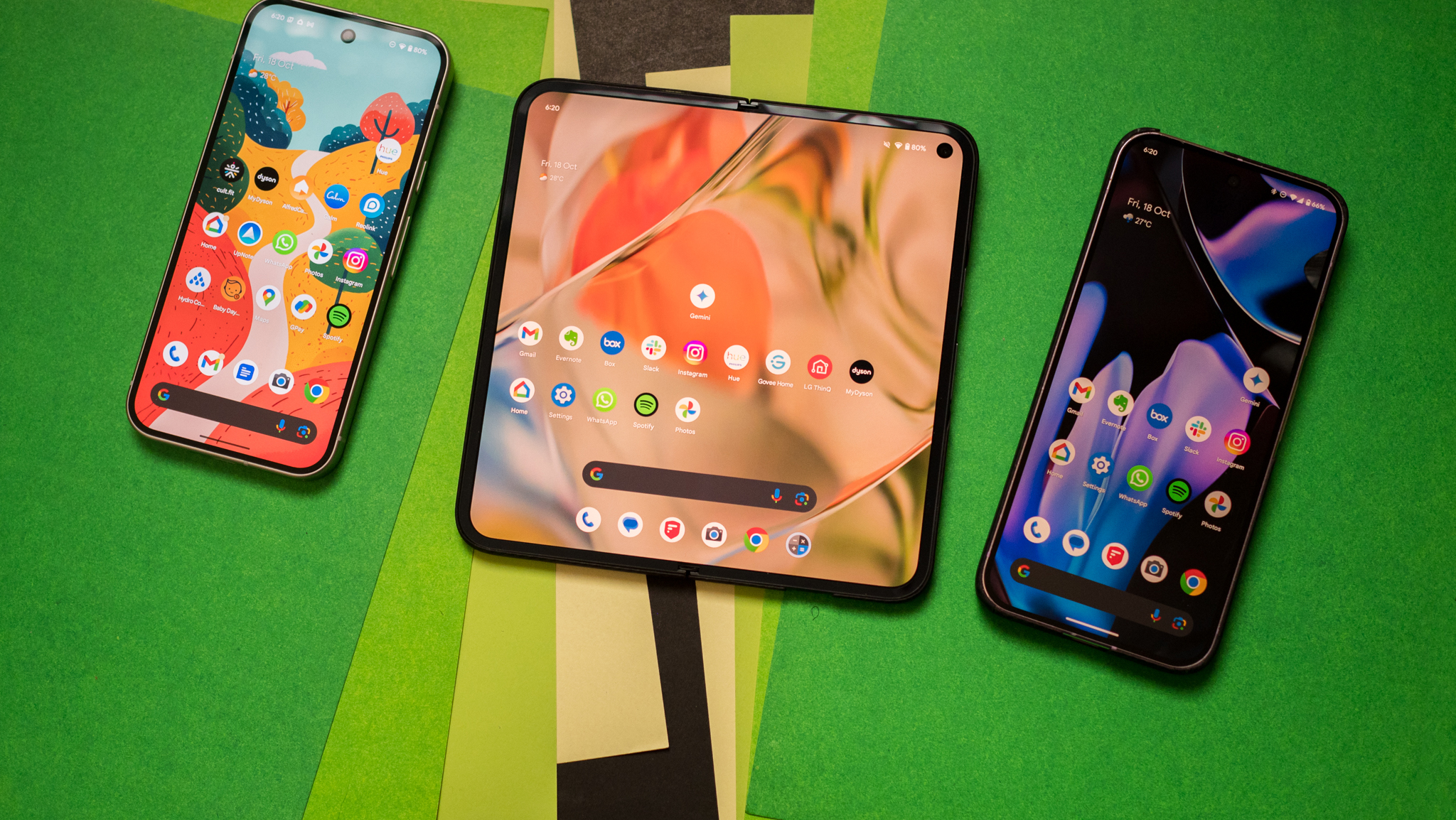Google needs to figure out what to do with Fitbit and Google Fit
To Fit or to Fitbit, that is the question.

Since Google I/O 2021, there has been a lot of excitement about the company bringing Fitbit into the Wear OS ecosystem, although we didn't really know what it meant. More importantly, we didn't know what it meant for Google Fit, the search giant's in-house health and fitness monitoring app.
Now, more than a year later, we finally have the Pixel Watch and Fitbit on Wear OS, but I can't help but feel like this is the beginning of the end for Google Fit. Google effectively now has two health and fitness tracking apps to manage across its smartphones and new smartwatch, and I can't help but wonder what the plan is.
In a recent CNET interview, James Park, Fitbit co-founder and head of Google's wearables group, spoke about the two apps, saying that they will coexist and that Fitbit is seen as the "flagship primary health experience." However, in my opinion, the strategy feels a little confusing, and I feel like Google would be better off just merging the two apps somehow.
As someone who frequents the gym, Google Fit has been a staple of my fitness journey. It's not the most impressive fitness app, and there are much better options out there, but one of the best things about it is that it consolidates all my various health and fitness information into a single app. I've personally never used Fitbit, but it's a very popular service that many people know and trust.
Two is not always greater than one.
For me, it makes the most sense to eventually combine these services, given the company's recent efforts to consolidate its other apps and rid itself of redundant services to "focus" itself. Developing Google Fit and Fitbit simultaneously but separately just doesn't make sense.
Jitesh Ubrani, research manager for IDC's worldwide device tracker, agrees, saying that Google will have to focus on one over the other.
"For as long as Fitbit devices exist, the Fitbit app needs to exist in one form or another," Ubrani tells me in an interview.
Be an expert in 5 minutes
Get the latest news from Android Central, your trusted companion in the world of Android
"However, in the long term, it doesn't make sense to maintain both Google Fit and Fitbit as separate entities, so a merging of the two would be ideal. This would certainly stand to benefit Google's own devices though it may leave some Wear OS partners out in the cold. Thankfully though, Google is allowing partners to create their own apps, so perhaps aspects of Google Fit get relegated to third parties while the core strengths of the Fitbit app get folded under the larger Pixel and/or Google umbrella."
For as long as Fitbit devices exist, the Fitbit app needs to exist in one form or another.
Jitesh Ubrani, research manager, IDC
However, it likely won't be a simple matter to phase out one or the other. As noted before, Fitbit is well-known, while Google Fit is the company's in-grown service. And while the latter hasn't quite taken off, Google has slowly built more functionality into the app, like adding support for Health Connect, allowing users to view their Fit data on Nest smart displays, and a few other useful features. Sure, there's still plenty of room for improvement, but it's Google's baby.
Of course, after the Stadia situation, we've learned that nothing is safe. So Google could very well absorb Fit into Fitbit at a moment's notice.
However, there's also the matter of the terms of Google's acquisition of Fitbit. The European Commission cleared the deal on the premise that Google "maintain a technical separation of the relevant Fitbit's user data," and also mandates that Google can't use the data it collects from Fitbit for ads. This is a commitment that will last until at least 2029, which could make it difficult for Google to merge the two in the meantime, and is likely why the two apps have to coexist.
To Fit or to Fitbit

With the launch of the Pixel Watch, we've had to deal with some very first-generation product pains. To start, the Pixel Watch integration lacks some functionality Fitbit users have become used to, such as automatic workout detection or the new Irregular Heart Rhythm notifications. Battery life also falls behind even some existing Wear OS watches, like the new Galaxy Watch 5, and is a far cry from what you'll get on any of the best Fitbit devices.
Not to mention, Fitbit is currently exclusive to the Pixel Watch, at least for now, with no word on if or when it will be available on other Wear OS watches.
Google seems less concerned about Fit as it leans on Fitbit for the new Pixel Watch.
To make matters worse, it's almost as if the company has forgotten Google Fit. The app is not preloaded on Wear OS 3, and support has apparently been shoddy on the Pixel Watch and other Wear OS 3 smartwatches besides the Galaxy Watch. As Fossil explains, this is a simple matter of the app not being updated to support the new Wear Health Services system. Still, it seems like a small and odd omission on Google's part, essentially leaving OEMs to effectively fend for themselves when it comes to health tracking. Fossil even had to create a workaround just to get Fit data to sync to its Wear OS 3 watches.
As Ubrani notes, Wear OS OEMs are seemingly encouraged to create their own apps, like Fossil and its Wellness app, which I find pretty helpful. But bringing all that information together in Google Fit has been an essential part of my fitness journey, so the shoddy support in Wear OS 3 is a little troubling.
That's not to say Google has actually forgotten about Fit and is probably still very committed to its development for the time being. I can't help but think that this is all a precursor for Google to eventually phase out Google Fit down the road. The company is already preparing to eliminate Fitbit accounts in 2023 and will require Google accounts to use new features and devices. As the company continues integrating Fitbit, it may no longer have room for Google Fit in the long run.
Bringing Fitbit to the Pixel Watch is a "first step and investment" for Google.
According to Park, Fitbit on the Pixel Watch is something of a "first step and first investment." And while it sucks to not have it available on other watches quite yet, Ubrani says Google is smart to launch Fitbit alongside the Pixel Watch, given the brand's cachet in the wearable market.
"Not only is the app associated with health and fitness, but it also goes further by offering additional features such as exercise routines and access to Fitbit's community as well as the ability to connect to other Fitbit devices."
"On the other hand, Google Fit, though having been around for many years, still hasn't built up quite the appeal and is in some ways an outsider because there's no singular device type associated with it. It often pulls in data from third-party sources instead, acting more like a repository than a coach. I think this is why we see the Fitbit brand and app right alongside the Pixel Watch."
That said, it would be nice if we could at least sync the two services together, another weird omission since Google purchased the company more than a year ago. This may finally be possible once Fitbit gains support for Health Connect, Google's new API that unified health and fitness data across apps and platforms, but at the time of writing, the two services are still very separate, and you need a third-party app to sync the two together.
The best of both worlds

As I mentioned before, I don't use Fitbit. But as far as I can tell, it's a more "active" service compared to Google Fit's more "passive" approach. In fact, Park noted in an interview earlier this year that the apps are staying separate because of the different approaches.
"Both user groups, which are fairly substantial, like the app they are using for a variety of reasons. For now, we don't see any reason to change that." That's probably true, and either way that Google goes about a theoretical merging of the two would likely upset at least one of those groups. Still, I think that there has to be some way to give us the best of both worlds within a single app across Google's devices.
One thing I love about Google Fit is that it brings all my data together from my smartwatch, Oura Ring, and Withings smart scale. All these other services do the work, while Fit just absorbs the data. It also presents it in such a way that makes it easy to understand, view trends, and see where the data comes from. At the very least, a theoretical merger should maintain this aspect of Fit by making the data super accessible.
Fitbit seems more adept at tracking activities but also has a pretty strong community and social aspect. This is something that would be cool to see more of in Fit and should definitely stick around if the apps were to ever merge. I don't really need deep insights into my fitness information, and Fit doesn't really provide that, which I'm okay with. Those can stay locked behind Fitbit Premium for all I care, just as long as I have access to my basic health and fitness data.
So while I would miss Google Fit, it's probably time for it to slowly die in favor of Fitbit. Plus, if and when Fitbit launches more widely on Wear OS, it could potentially take some of the burdens off of OEMs and give the Wear OS platform as a whole a more complete health and fitness tracking experience, which could give it a leg-up over Apple's efforts.
Whatever Google eventually decides to do with Fitbit and Google Fit, just hope the Fit features I know and love don't get shoved behind a paywall in the process.

Derrek is the managing editor of Android Central, helping to guide the site's editorial content and direction to reach and resonate with readers, old and new, who are just as passionate about tech as we are. He's been obsessed with mobile technology since he was 12, when he discovered the Nokia N90, and his love of flip phones and new form factors continues to this day. As a fitness enthusiast, he has always been curious about the intersection of tech and fitness. When he's not working, he's probably working out.
